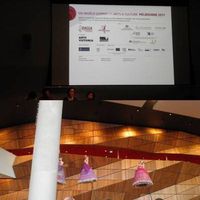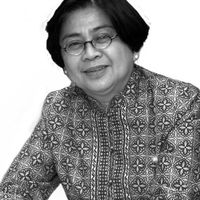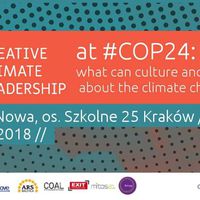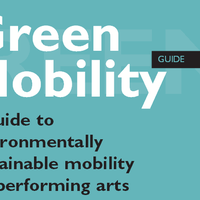Asia-Europe perspectives on art and climate change
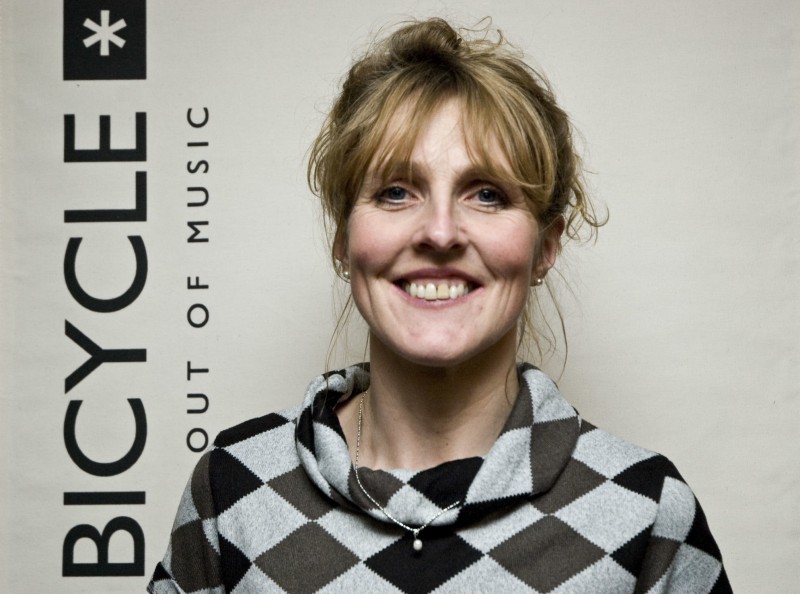 Contributed by Ulla-Alexandra Mattl
Contributed by Ulla-Alexandra Mattl[caption id="attachment_17469" align="aligncenter" width="417" caption="Alison Tickell"]
The venue for the 5th World Summit on Arts and Culture, which took place in October 2011 was the Melbourne Convention and Exhibition Centre – the first and only convention centre in the world with a 6 star Green Star environmental rating, representing world leadership in green design and operational features.
The summit theme “creative intersections” explored how artists can give voice to diverse communities and concerns through collaborations with experts from other sectors including the environment and sustainability.
With the support of the Asia-Europe Foundation (ASEF) one of the roundtables at the conference called a “Climate for Change” was entirely dedicated to how numerous initiatives addressing climate change could help adopt more environmentally sustainable practices.
Alison Tickell (Director, Julie’s Bicycle) did not only take part in the roundtable but also gave the final key note speech at the conference. This shows how much importance the environment was being given as a “creative intersection” at this year’s World Summit.
Tickell established Julie’s Bicycle in 2007 as a non-profit company helping the creative industries reduce their environmental impacts and develop new thinking in tune with global environmental challenges. She is Associate Professor at Buckinghamshire New University, on the Global Reporting Initiative, and a founder of the United Nations Environmental Programme Encore initiative.
Tickell showed delegates from around the world how the cultural sector can do its share by reducing its carbon foot print. Since the widespread acknowledgment of the economic benefit of the cultural industries they are now booming throughout the world and government support for the sector is increasing. Tickell points out that the environmental impact of creative companies is still being underestimated and finds it crucial for research to be undertaken in order to have the hard core data. She believes that with the help of research results and facts on the table it becomes hard for companies to say that they don’t have any impact on the environment.
“The research gives us clear vision of where we are going”, she says and adds “we need to work to highest standards and accountability. We need to understand our impact before we can start thinking about what we can do. The starting point is around efficiency – we need to work as much as we can on things that we’ve got.”
According to Tickell climate scientists are seeing the arts as just a messenger – during her presentation at the conference she insists that this needs to change.
Her organisation Julie’s Bicycle has developed an extensive set of tools and resources specifically for the creative industries. They are all industry tested. Solutions include: Industry Green certification, carbon calculators for creative activity: venues, festivals, tours, and networks, practical guides and top tips, campaigns and networks. Tickell is working with about 30 collaborations and networks working with more than 400 organisations.
“We are helping to make environmental sustainability intrinsic to the business, art and ethics of music, theatre and the creative industries” she points out.
[caption id="attachment_17473" align="aligncenter" width="360" caption="Pooja Sood"]
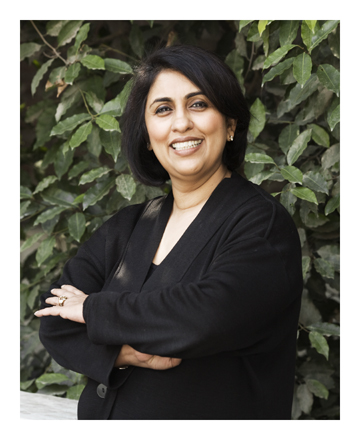 [/caption]
[/caption]As a contrast to Tickell’s examples from her work in the UK, Pooja Sood (Director, KHOJ International Artists’ Association) finds that to a certain extent environmental awareness exists in India and Asia but that there are not many signs of this in the cultural sector.
The mobility of artists increases now and countries are just catching up with artists leaving their countries as exchange opportunities are growing. She says that this is not the moment when they can be stopped because of any environmental impact of their travels or artistic practice.
While she believes that artists should take responsibility for their own work she poses the question how long it will actually take for this to happen. She talks about the need to work with organisations and making it a pattern for the artists who will have to be made aware of their role and impact on climate change.
Sood says that environmentalists do get a voice and that the intersection with the cultural sector will happen quite soon, while the government is not brokering this. Although cultural organisations in India are looking at issues such as environmental sustainability there is, according to Sood, for the moment no space for an organisation like Julie’s Bicycle run by Alison Tickell.
Sood who knows South Asia well, points out that for that region it will take even longer to raise awareness for climate change issues and environmentally sustainable practices since it is such an unstable area.
“Japan and Korea are much more advanced and things will happen much faster”, she explains.
Tickell points out that it is important for us to ask the question what we mean by policy and sustainability. What exactly does this mean in Europe? What does it mean in Asia? Since policy does not let us act, she finds that we therefore need to create a capacity for us to act on.
During the roundtable on climate change she underlines that “the task is insurmountable – we have to work on making it manageable “.
Ulla-Alexandra Mattl is the Co-ordintor of EUNIC in Brussels and the Project Manager of the European project Poliglotti4.eu. She is also the EU Correspondent for the Artsmanagement Network. Ulla is specialised in cultural relations and holds an MA in Cultural Policy and Arts Management from City University London as well as an MA in Finno-Ugric Studies and French with focus on Sociolinguistics www.poliglotti4.eu
For more information:
http://www.juliesbicycle.com/
http://www.khojworkshop.org/
Similar content
posted on
20 Jun 2011
from - to
06 Dec 2018 - 06 Dec 2018
posted on
14 Mar 2013

